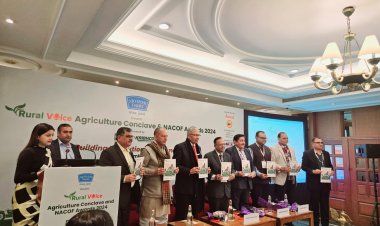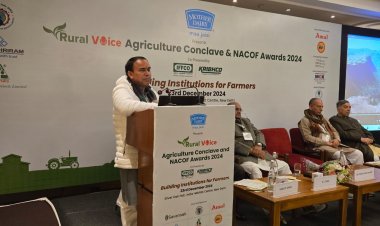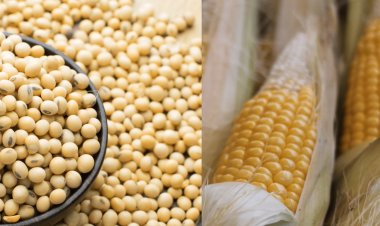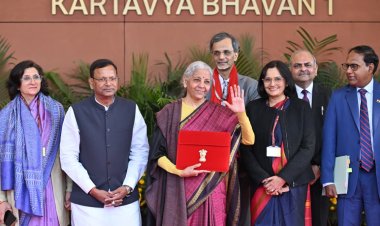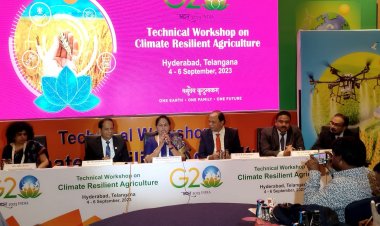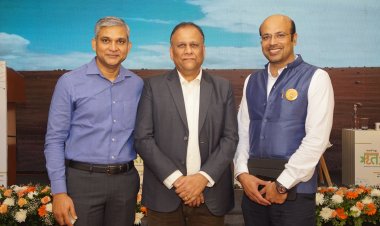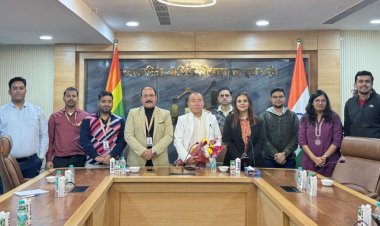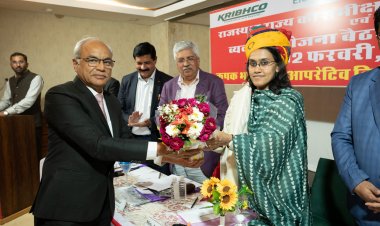Govt's efforts to augment Indian crops, livestock laudable: CEO GS1 India
India's agriculture sector has witnessed a significant growth at an average annual rate of 4.6% in the last six years. This has allowed the agriculture and allied sectors to contribute towards the country’s overall growth, sustainable development, and food security, says S. Swaminathan, CEO, GS1 India.

India's agriculture sector has witnessed a significant growth at an average annual rate of 4.6% in the last six years. This has allowed the agriculture and allied sectors to contribute towards the country’s overall growth, sustainable development, and food security, says S. Swaminathan, CEO, GS1 India.
In an e-mail interview with Rural Voice, he said that in recent years, "our country has emerged as a leading net exporter of agricultural products, with export levels reaching a record of $50.2 billion in 2021-22. This positive trend is due to the government’s continuous efforts to augment Indian crop and livestock productivity and tackle the issue of food scarcity with more effect".
Moreover, he said, initiatives to offer minimum support prices to farmers have contributed to the trend. "However, we are confident that more focused efforts to boost access to credit and subsidies to farmers and promote organic farming can improve the quality and quantity of India’s agricultural output. Despite the rampant ill effects of climate change, India has managed to increase its crop production level," he noted.
But, problems related to spurious pesticides and low-quality agricultural inputs continue to hamper output quality and affect the agriculture sector on a broader scale. "Taking necessary steps can help overcome these issues at the grassroots level and further strengthen the Indian agricultural sector’s potential to add to the growth and development of the country," he said.
Swaminathan said high-quality inputs, including seeds, fertilisers, pesticides, and efficient irrigation systems are indispensable for improving crop yield and increasing the overall productivity of the Indian agricultural sector.
Consumable agri inputs like seeds, water, soil, pesticides, and insecticides, along with capital inputs like reflective mulches, tractors, and ploughs, can improve agricultural productivity. Moreover, eco-friendly inputs such as integrated pest management help lower the widespread use of harmful pesticides and promote sustainable farming practices, he said.
The CEO said, "It is encouraging to see how the Indian government has been supporting high-quality agri inputs adoption through policies and subsidies. Investing in these initiatives can prompt sustainable farming practices and help our country achieve long-term growth and sustainability in the Indian agricultural sector."
Plus, more government-backed initiatives to promote high-agri input usage can help eliminate issues that impede India from reaching its true growth potential. Even leading agri-input industry players and stakeholders can play a transformative role and increase farmers’ access to quality and affordable agriculture inputs and boost agricultural output on a broader scale.
They can adopt modern technologies and best practices to ensure the quality of their products and increase accountability and transparency in their supply chain management. "In my experience, industry players can play a crucial role in promoting eco-friendly agri and capital inputs to promote sustainability in the sector.
Swaminathan pointed out that the Department of Agriculture, Government of India, has introduced the QR code application to prevent spurious, counterfeit, and non-approved products from reaching the market and to ensure farmers have access to quality agri-input.
"The Department of Agriculture’s initiative to introduce a QR code application is a much-needed step. We believe it is a well-designed system that could help prevent the circulation of counterfeit and sub-par agri-products in the market. It will empower farmers to avoid inferior agri-input products and help them verify their authenticity accurately," he said.
The GS1 CEO said implementation of QR codes may also facilitate transparency in agrochemical distribution, ensuring farmers receive superior quality seeds, fertilisers, and other vital agri-input products essential for their farming practices.
The system can also help farmers access information on agri-input products, track their origin, monitor their availability in real-time, and help them maintain stock effectively, he said.
"While we would like to credit digitisation for making the implementation of QR code systems easier, the success of this initiative will depend on the rate and scale of adoption across the country. As more companies and stakeholders become accountable for their actions, the level of transparency across the supply chain might increase in the future," he added.
GS1 India, a standard organisation, set up by Ministry of Commerce and Industry along with other apex trade bodies, is a subsidiary of the global organisation barcoding leader, which is responsible for promoting and implementing GS1 standards in India.
GS1 recently conducted the National Conference on QR Code Implementation in the Agriculture sector in Delhi, during which it launched a White Paper with the title track of “Leveraging QR CODE to transform the agri-Input supply chain”.
The conference was a pivotal event that delved into the benefits of QR code implementation, GS1 said in a pressnote.



 Join the RuralVoice whatsapp group
Join the RuralVoice whatsapp group

















